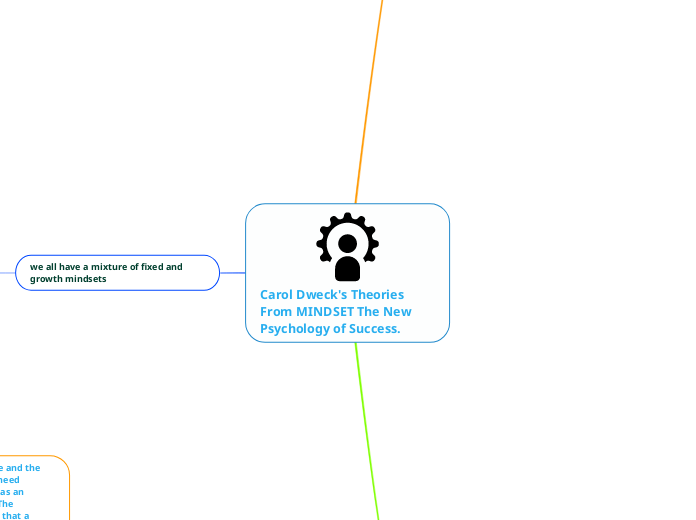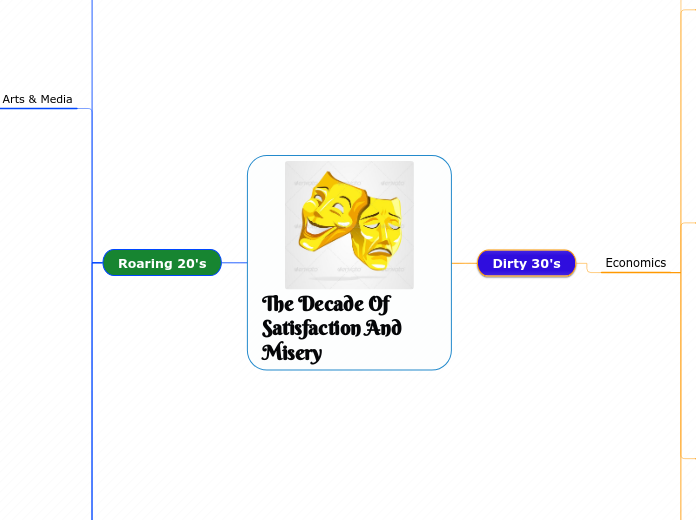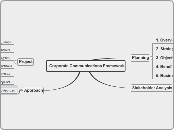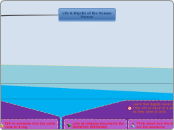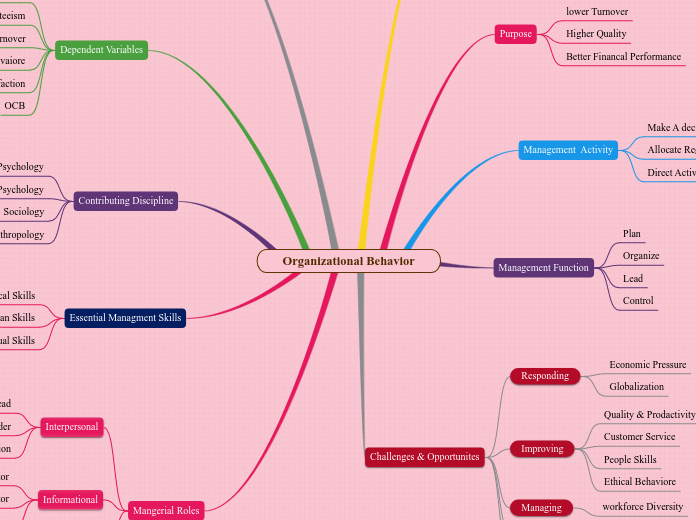Makes me think of:Tortoise and the
hare. But the fable would need
adapting in order to use it as an
image od Dweck's theory. The
fable is missing the notion that a growth mindset sees errors as opportunity for growth. Another thing that
comes to mind is the expression:
"I think, therefore I am".
Carol Dweck's Theories From MINDSET The New Psychology of Success.
we all have a mixture of fixed and growth mindsets
We all exhibit a repertoire of mindsets that vary depending on domain and situation. It's unrealistic and unhelpful to label ourselves as solely fixed or growth-oriented. The key is cultivating awareness of when automatically engaging a fixed lens so we can instead flex judgment and response in a learning-oriented direction.
the importance of acknowledging both
By recognizing our potential for any mindset in different scenarios, we can notice automatically engaging fixed tendencies and consciously redirect ourselves toward a more learning-oriented outlook. This metacognitive awareness equips us to flex judgment productively and optimize how we approach endeavors
examples of growth mindset tendencies
Recognition that abilities and understanding develop continuously over time
- Viewing challenges as opportunities to acquire new skills or knowledge
- Willingness to learn from both successes and failures
- Focus on self-improvement goals rather than external validation
- Appreciation that effort and strategies are what lead to mastery
examples of fixed mindset tendencies
- Persistent attributing of success to innate talent rather than work
- Explaining away mistakes as reflecting immutable weaknesses
- Reluctance to acknowledge effort's crucial role
- Defensive response to perceived challenges to abilities
- Emphasis on outperforming others versus self-improvement-
We can change our mindsets
educating the persona
- Learn growth mindset phrases to restructure thought patterns. Understand challenges develop skills rather than prove worth. Success comes through dedication and commitment to improving, not fleeting demonstrations.
creating a persona
- Roleplay responding resiliently when facing difficulties. Refer to abilities expanding through effort rather than judging inabsolutes. Focus on process, strategies, not perceived talent.
identifying triggers
- Journal perceived failures, critiques etc. Note causal attributions - due to internal, stable factors? Reflect on language used - does it convey a learning process or judgment of ability?
embracing your fixed mindset
- Identify implicit beliefs about one's traits being static entities. According to Dweck, acknowledging implicit theories is key for reforming them.
Mindset greatly affects how we live our lives
parenting
A growth mindset as caretakers means understanding each child has potential yet to be uncovered - not a finished self at any stage. Skills and interests will take shape through exposing all children to varied opportunities where they can discover passions driving lifelong motivation. Early demonstrations signify starting points, not ceilings on potential reachable through commitment of will. Challenges will be embraced as spurring development rather than as a threat to deserved pride. Effort and strategies for continuous betterment hold highest value and purpose of praise. Cooperation within the family supports bringing out the best in each member through shared belief that abilities bloom gradually, not fully formed from inception. With patience and nurturing, all children can amaze themselves and parents alike.
Regrettably, some parents adopt fixed notions believing their child's talents or intellect are predestined based on genetics alone. Rather than nurturing holistic development, focus is placed on proving the child measures up in specific areas. Too much emphasis is given to early demonstrations of ability, which can prematurely close doors if deficits are seen. Mistakes and challenges are avoided to protect this image of native gifts, discouraging risk-taking vital for growth. Praise centers on performance comparisons, fueling competition within families rather than cooperation. When grit is needed, self-belief may falter without recognizing abilities expand through dedication.
sports
Those with a growth perspective realize no athlete is born fully formed, and record-breaking feats involve constant refinement over many years. Talent serves as a beginning, not an end, for attaining higher levels through study of the craft. Injuries and downturns are accepted as opportunities to fortify strengths, not indictment of gifts. Effort and strategy take precedent over immediate outcomes as means of performance rise. Feedback cultivates hungrier drive for improvement versus dwelling on diminishment. Success stems from personal benchmarks and team contribution, not simply outperforming others. Coaches empower by addressing techniques, not innate traits limited by labels like "good enough". This mentality stresses results derived from and sustaining lifelong passion for mastery.
For athletes with a fixed mindset, their capabilities are seen mainly as innate gifts rather than abilities that can be expanded through strategy and perseverance. Success comes from proving one's inborn talent, which also implies failure calls that talent into question. Injuries or slumps may be taken as signs talent has ran its course. Criticism and mistakes are threatening, discouraging risk-taking needed to excel. Competition focuses on outshining rivals rather than continual self-betterment. Coaches face resistance if recognizing room for growth versus talent validation. Over-reliance on genetic potential risks undermining sustained development and fulfilling career arc.
relationships
For those with a growth mindset, relationships are seen as life domains where both partners can continuously learn and develop and intimacy can deepen through open communication and resilience during difficulties. Rather than comparing static qualities, effort and adapting understanding to meet each other's changing needs are emphasized. Conflicts are part of the process of coming to know another fully and building trust. Compatibility grows out of willingness to face
Those with a fixed mindset regarding relationships see the qualities of both themselves and their partners as static traits. They focus on comparing qualities and proving compatibility through validation of innate attributes. When differences arise, they are quick to conclude lack of compatibility rather than seeing relationships as works in progress. Conflicts are avoided rather than viewed as opportunities to deepen understanding. This makes growth and learning together over time unlikely, leading to a vulnerability to prematurely ending relationships when challenges emerge.
learning/ education
- Growth mindset helps students face challenges/obstacles with resilience
Quote: "...through application and experience."
- Teachers can cultivate growth mindset by focusing on process over outcomes
Detail: Emphasize strategies, effort, progress rather than "smart/not smart" labels
Connecting ideas: A growth mindset fosters persistence and strategy use, helping all students improve over time versus giving up.
Impact of praise/feedback on mindset
- Praising intelligence signals "fixed traits" view of ability
- Praising effort conveys abilities can be developed through hard work
Quote: "Praising process—the steps taken or strategies used to achieve something—gives students feedback for improvement..."
- Constructive criticism explains "what" needs work, not doubts about "who" they are
Connecting ideas: The type of praise and feedback shapes whether students see their traits as flexible or fixed.
- Students may think they can't get smarter or learn from mistakes
Quote: "students with fixed mindsets believe that they're incapable of becoming smart (or smarter). They're afraid to take on new challenges and they doubt their ability to learn from mistakes."
- Teachers can unintentionally limit students' potential
Quote: "teachers with the fixed mindset label students as "dumb" or "smart" and by doing so, limit the children's potential and discourage them from learning."
business/ leadership
growth
- Growth mindsets foster improvement and learning in teams
Quote: "In this mindset, the hand you’re dealt is just the starting point for development."
Connecting ideas: A fixed mindset limits business growth over time, while a growth mindset promotes continuous evolution
fixed
- CEOs with fixed mindsets only want people who agree with them, limiting innovation
Quote: "CEOs with a fixed mindset choose to surround themselves with people who only agree with them and put them up on a pedestal."
- Fixed mindsets discourage risk-taking and addressing inefficiencies
Quote: "Different opinions, reasonable risk-taking, and addressing inefficiencies aren't encouraged and therefore, no longterm growth is possible."
